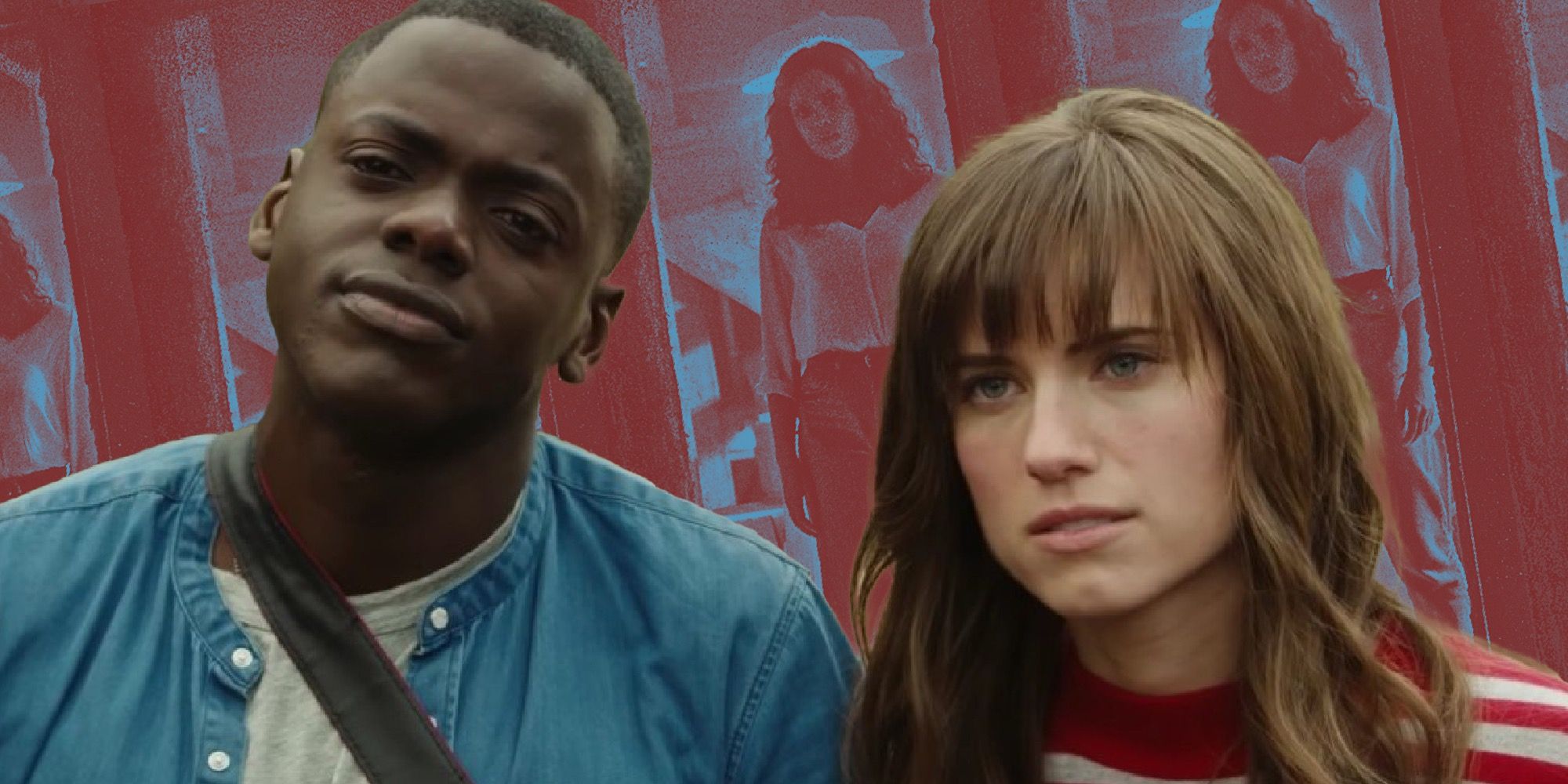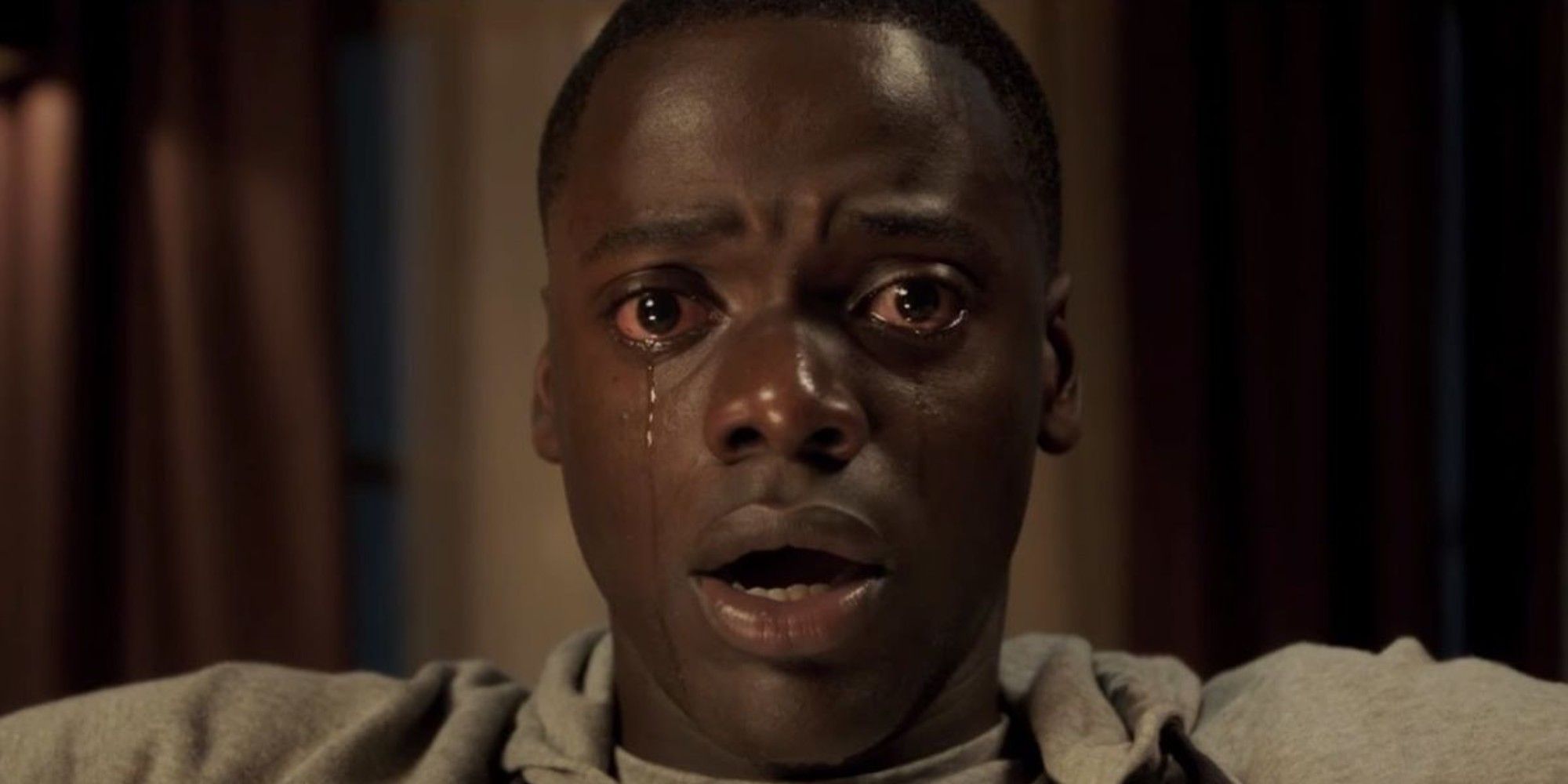This article contains spoilers for Barbarian and Get Out.
There's an old analogy about comedy that maps pretty easily to horror. Explaining a joke, the saying goes, is like dissecting a frog. You understand how it works. But, the frog dies.
There's nothing funny about having to explain what makes things funny, and there’s nothing scary about shining a fluorescent light on the creature under the bed. In revealing the monsters or mechanisms behind the horror, we may scare the scares off in the process.
There's another saying that applies specifically to the genre in question: nothing is as scary as the monster you're imagining. When I watched Barbarian last month, I was rapt for the first hour and twenty minutes. But, when the puzzle pieces of Zach Cregger’s non-linear horror film began locking into place, as the explanation for what was really going on became clear, I couldn't help but be a little disappointed. All that formal inventiveness for this? It wasn't that the movie's answer was bad, necessarily. It was just that, after an hour and twenty minutes of wild speculation, the actual answer couldn't compare. It seemed a little pedestrian when compared with how wild I had let my imagination run.
On the other hand, when I saw Get Out in 2017, the moment of revelation upped the ante. I think the difference lies in where the two films begin. Barbarian's horror starts with the discovery of a secret chamber beneath an AirBNB, which leads to a steep staircase, which in turn leads to a network of tunnels so ageless and expansive that the explanation it could be gesturing toward borders on the cosmic. When the answer ends up being that an evil old pervert was kidnapping women to make them his sex slaves and imprisoning them in this tunnel network, it's so grounded that there's a whiplash as our imaginations fall back to earth.
But, in Get Out, the conceit begins with such a mundane — though scary in its own right — set of circumstances, that the turn it takes towards science fiction feels like a significant escalation. When Chris, a Black photographer, travels with his white girlfriend Rose to meet her wealthy family, the tension for Chris is whether the weekend will be uncomfortable or not; whether her family will treat him well or weirdly. Peele thickens the tension so artfully, and doles out information so deliberately, that when it's finally revealed that Rose's family are in the business of kidnapping Black people and supplanting their consciousnesses with the minds of rich white people seeking control of a younger, better body, it feels of a piece with everything that has come before, but still manages to shock.
While both of these movies are good, Get Out is a cut above Barbarian because the reveal it holds back is as interesting as the path we walk to get there. Horror can be structured like other kinds of mysteries, too. It can be a whodunnit, as in the case of this summer's Bodies Bodies Bodies, in which one member of a friend group is killed for real while playing an Among Us-style party game. Or, the mystery can simply be whether the protagonist will make it out alive. This is the question that animates slashers like The Texas Chain Saw Massacre, Halloween, and It Follows. The mystery of what is going on rarely lasts long in movies like this — It Follows even has a scene where one character explains the rules to another in full. And, in all three, it's clear early on who is responsible for picking characters off. Once that question is answered it typically gives way to the more primal mystery of whether our heroes will manage to escape with their lives.
And, of course, David Lynch's films may present the most interesting mystery of all: the kind that isn't meant to be solved. Instead of handing us a puzzle box and asking us to solve it, Lynch gives audiences something unknowable and strange. The mystery isn't, 'What does this mean?' The mystery is, 'What does this mean to me?' Good horror is in the business of getting us to ask questions. They can be about the work, about ourselves, or about both.


